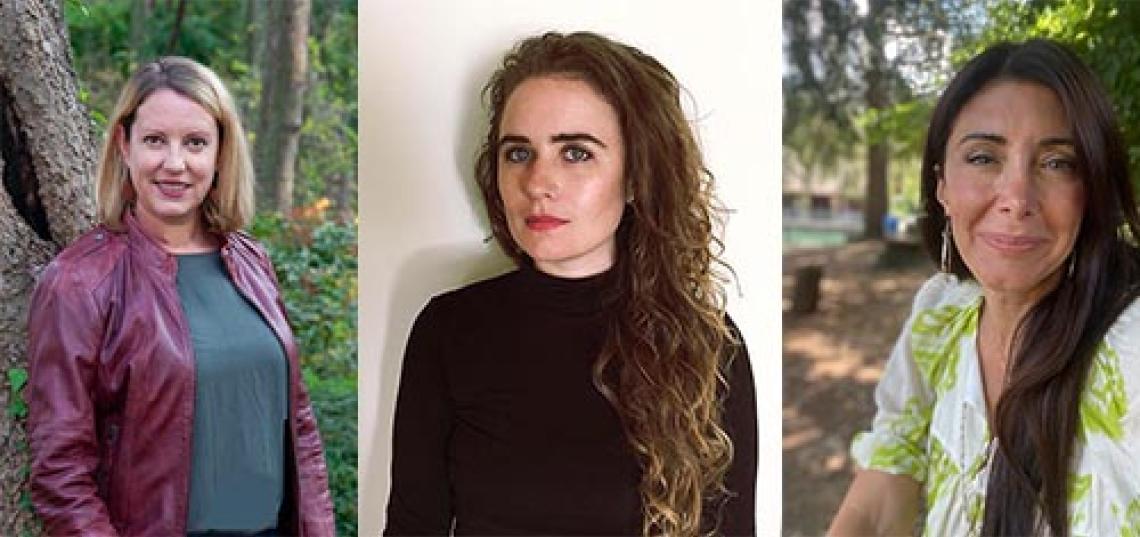
The proliferation of misinformation is a global crisis, and mitigating its spread and impact necessitates addressing the behavior of its consumers, not just its creators. One solution might therefore be to teach students, from K-12 through higher education, to become more critical consumers of news and information and to develop media and information literacy.
In the Spring of 2021 Rutgers University administrators identified media and information literacy as a unique generational problem related to misinformation. SC&I Library and Information Science faculty members Assistant Professor Britt Paris and Associate Professor Rebecca Reynolds, along with Gina Marcello Ph.D.’08, MCM’95, COM’93, a part-time lecturer at SC&I, and associate professor and chair of the Communications Department at St. Elizabeth University in Morristown, N.J., stepped up to develop a media and information literacy course for first and second-year undergraduates. The result is a new class, DisInformation Detox, which is being offered at SC&I for the first time during the Spring 2023 semester, and taught by Paris.
Following the development of the course, the three published two theoretical papers, which present how they developed the course around disinformation as a problem-based learning area to engage undergraduate students in critical discussions on various media and information literacy approaches, their benefits and their limitations.
The first paper, published in the journal Information and Learning Sciences in February 2022, is “Disinformation Detox: Teaching and Learning About Mis- and Disinformation Using Socio-Technical Systems Research Perspectives.” This paper includes the entire curriculum for the new Rutgers Disinformation Detox course.
The second, “Cultivating Ecological Literacy: A Critical Framework for Understanding and Addressing Mis- and Disinformation” was published in the Proceedings of the Association for Information Science and Technology, in October 2022 and it earned a “Best Short Paper” award (3rd Place in the short papers category) at the Association for Information Science and Technology (ASIS&T) annual meeting.
The paper “Disinformation detox,” Paris, Reynolds, and Marcello wrote, “presents the rationale for our curriculum design approaches and sets out an ongoing agenda of design-based research (DBR) to continue iterating the curriculum” while also providing readers with “an understanding of the mis- and dis-information studies landscape.” The authors also advocate for the merit of taking the pedagogical approach they outline.
The value and originality of this paper, Paris said, “is in its contribution of the ontological ‘innovation’ of a way of framing the mis- and dis-information knowledge domain in terms of social shaping and critical informatics theories to offer students the opportunity to cultivate a complex, critical, and more holistic approach to mis- and disinformation.”
Their second paper, Paris said, provides an in-depth overview of the problem area of mis- and disinformation as it is addressed in a number of uncritical and incomplete ways and our theoretical approach of studying the problem area more critically and holistically.
“In both papers,” Paris said, “we draw from Milner and Phillips’ model of ecological literacy (2020), a fairly new framing contributing to mis- and dis-information research that sees the cause, problem, and solutions for misinformation and disinformation as necessarily multifaceted and approaches the problem through its socio-technical systems components and agents that exist within structures of power; and importantly that agents can enact change in these systems.”
While their course is designed for university students, Paris said, it is possible that some of the curriculum she, Reynolds, and Marcello developed could be adapted for K-12 classrooms.
“Offering the course at this time is interesting,” Paris said, “given that just a few days ago, New Jersey Governor Phil Murphy signed bipartisan legislation (S588) establishing the requirement of K-12 instruction on information literacy under the implementation of the New Jersey Student Learning Standards.”
Learn more about the Library and Information Science Department at the School of Communication and Information on the website.
